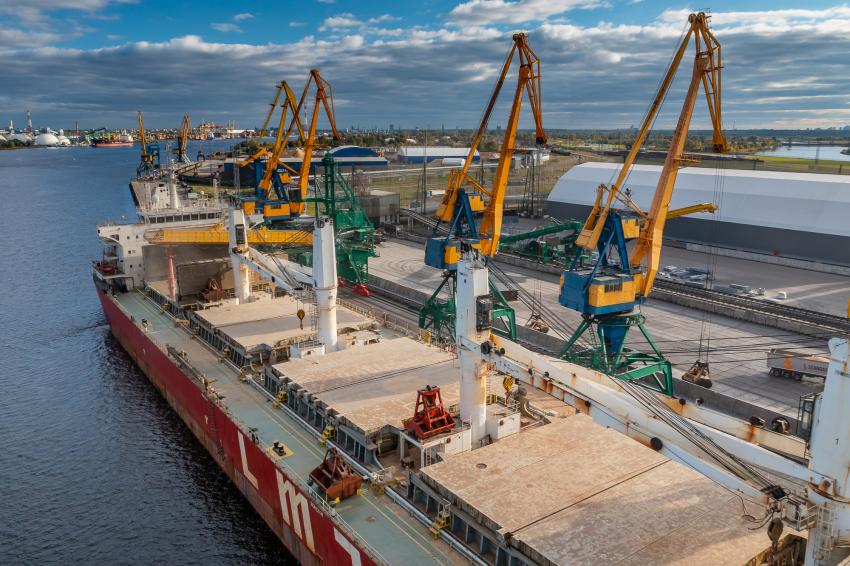According to operational data, in 9 months of the current year, 15.2 million tons of various cargo were transshipped through the port of Riga, moreover, in September 2021, + 8% more cargo was handled in comparison with the same period last year. In total, most of the handled cargo were forestry products, i.e. 4.6 million tons (+ 10% compared to September 2020), about 3 million tons of containerized cargo and about 2 million tons of grain products, the volume of which has increased by more than 10% compared to 2020.
Not only the total amount of grain grown in Latvia and transshipped via the port is significant, but also the volume of agricultural cargo of foreign origin shipped through the Port of Riga - in 2020, 32% of grain cargo transshipped through the port was delivered directly from Lithuania, Russia, Estonia and other countries. That means that shippers of agricultural cargo based abroad choose the terminals of the port of Riga instead of the local ports as a more advantageous location for transshipment of their products.
“The competitiveness of the provided service is determined by several factors - port dues and charges, cargo handling efficiency, inland connections, geographical location, infrastructure, as well as the range and quality of services available in the port”, emphasized Viesturs Zeps, Chairman of the Freeport of Riga Board.
One of the important elements in the cargo handling process in the port is service provided by surveyors - cargo quality inspectors. Marine surveyors are independent experts working in the port, acting as support and control agents on behalf of the supplier, terminal or consignee. Their task is to carry out ship surveys and inspections, cargo quality tests and assessments to ensure that each actor in the cargo logistics chain has no doubts about the cargo condition, quality and volume.
“Over the years, we have tested more than 300 million tons of various cargo in our laboratories. Products such as coal, solid biofuels, manganese and ore, ferrous alloys, as well as grain, oilseed and bean crops are mainly tested in the laboratory, ”explained Julians Strods, Senior Cargo Inspector at ”Incolab Services”. The company he represents is one of the five surveyor service providers working in the port of Riga.
“The results of the tests and inspections determine the price of the products and probability of claims to be made against the trader as a seller of products or a provider of services. High-quality services, provided by laboratories such as “Incolab Services”, can mitigate various risks in the cargo transportation chain both when receiving and sending cargo, ”commented Arturas Rimkevičius, Chairman of the Board of the Lithuanian company “Agrobosas” commenting on the important role of surveyors in cargo transportation.
“Agrobosas” is a Lithuanian-based company that transports grain products grown in the neighboring country to the Freeport of Riga, where they are stored in the newly built closed-in warehouses at the SIA “Strek” terminal on Krievu Island. Grain testing is performed there and later, using deep-water berths on Krievu Island, the grain cargo is loaded on PANAMAX-type vessels and sent to Africa by sea.
"Transportation costs are calculated evaluating the entire portfolio of services available in the port", added Lithuanian businessman Arturas Rimkevičus He said that according to entrepreneurs’ calculations, cost savings when handling grain in the port of Riga reach up to 7 euros per ton, which proves efficiency and competitiveness of the port cluster’s general operation.
 English
English























